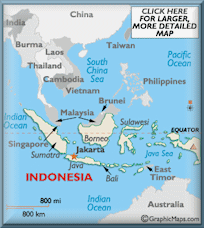-
-

Please Wait...
-
.id Indonesian Domain Country Information - .id Indonesia Country Information
.id

Price and Requirements for .id Domains
Registration Pricing
- 1 Year 169.00 USD
Application Fee
Registration Time Frame
2 Days
Requirements
No Details Are Individual .id domain registrations allowed?
Yes Details Company or legal entities registrations allowed for .id?
Yes Details Are there requirements, documents, or information needed for .id?
Yes Details Are some .id domain names restricted?
No Details Does .id domain have a special use?
Yes Details Other information I need to know about .id?
No Details Are there any additional fees for .id?
Yes Details Do I need a trademark/brand name to register .id?
No Details WHOIS Privacy service available?
![]() Trustee / Proxy service offered? Fees?
Yes
Details
Trustee / Proxy service offered? Fees?
Yes
Details
.id Indonesia Country Information
Indonesia, officially the Republic of Indonesia, is a country in Southeast Asia and Oceania. Indonesia is an archipelago comprising approximately 17,508 islands. It has 33 provinces with over 238 million people, and is the world's fourth most populous country. Indonesia is a republic, with an elected legislature and president. The nation's capital city is Jakarta. The country shares land borders with Papua New Guinea, East Timor, and Malaysia. Other neighboring countries include Singapore, Philippines, Australia, and the Indian territory of the Andaman and Nicobar Islands. Indonesia is a founding member of ASEAN and a member of the G-20 major economies. The Indonesian economy is the world's seventeenth largest economy by nominal GDP and fifteenth largest by purchasing power parity.
The Indonesian archipelago has been an important trade region since at least the 7th century, when Srivijaya and then later Majapahit traded with China and India. Local rulers gradually absorbed foreign cultural, religious and political models from the early centuries CE, and Hindu and Buddhist kingdoms flourished. Indonesian history has been influenced by foreign powers drawn to its natural resources. Muslim traders brought Islam, and European powers brought Christianity and fought one another to monopolize trade in the Spice Islands of Maluku during the Age of Discovery. Following three and a half centuries of Dutch colonialism, Indonesia secured its independence after World War II. Indonesia's history has since been turbulent, with challenges posed by natural disasters, corruption, separatism, a democratization process, and periods of rapid economic change.
Across its many islands, Indonesia consists of distinct ethnic, linguistic, and religious groups. The Javanese are the largest—and the politically dominant—ethnic group. Indonesia has developed a shared identity defined by a national language, ethnic diversity, religious pluralism within a majority Muslim population, and a history of colonialism and rebellion against it. Indonesia's national motto, "Bhinneka Tunggal Ika" ("Unity in Diversity" literally, "many, yet one"), articulates the diversity that shapes the country. Despite its large population and densely populated regions, Indonesia has vast areas of wilderness that support the world's second highest level of biodiversity. The country is richly endowed with natural resources, yet poverty remains widespread.
Indonesia is a republic with a presidential system. As a unitary state, power is concentrated in the central government. Following the resignation of President Suharto in 1998, Indonesian political and governmental structures have undergone major reforms. Four amendments to the 1945 Constitution of Indonesia have revamped the executive, judicial, and legislative branches. The president of Indonesia is the head of state, commander-in-chief of the Indonesian National Armed Forces, and the director of domestic governance, policy-making, and foreign affairs. The president appoints a council of ministers, who are not required to be elected members of the legislature. The 2004 presidential election was the first in which the people directly elected the president and vice president. The president may serve a maximum of two consecutive five-year terms.
The highest representative body at national level is the People's Consultative Assembly (MPR). Its main functions are supporting and amending the constitution, inaugurating the president, and formalizing broad outlines of state policy. It has the power to impeach the president. The MPR comprises two houses; the People's Representative Council (DPR), with 560 members, and the Regional Representative Council (DPD), with 132 members. The DPR passes legislation and monitors the executive branch; party-aligned members are elected for five-year terms by proportional representation. Reforms since 1998 have markedly increased the DPR's role in national governance. The DPD is a new chamber for matters of regional management.
.id Indonesia Domain Name - Country Information
| Country Domain | Indonesia Domain Name .id |
|---|---|
| Country Information | Indonesia Domain Country Information .id |
| TLD Bulk & Advanced Search | Indonesia Bulk Domain Registration .id |
| WhoIs Server | .id Whois Server Information |
| Domain Renewals | Renewal Indonesian Domain .id |
| Domain Transfer | Transfer Domain .id |
| Domain Hosting | .id Indonesia Web Hosting |
| SSL Certificates | SSL Certificates |
| Email Services | .id Indonesia Email Services |
| Domain FAQ | .id Domain Registration FAQ |
Indonesia Country Information Search Terms
Indonesian Domain Country Information Indonesian Domain Registrar Indonesian World Wide Domain Registration Indonesian Country Code Top Level Domain .id Domain Information Indonesian Country Information Indonesia Country Information










